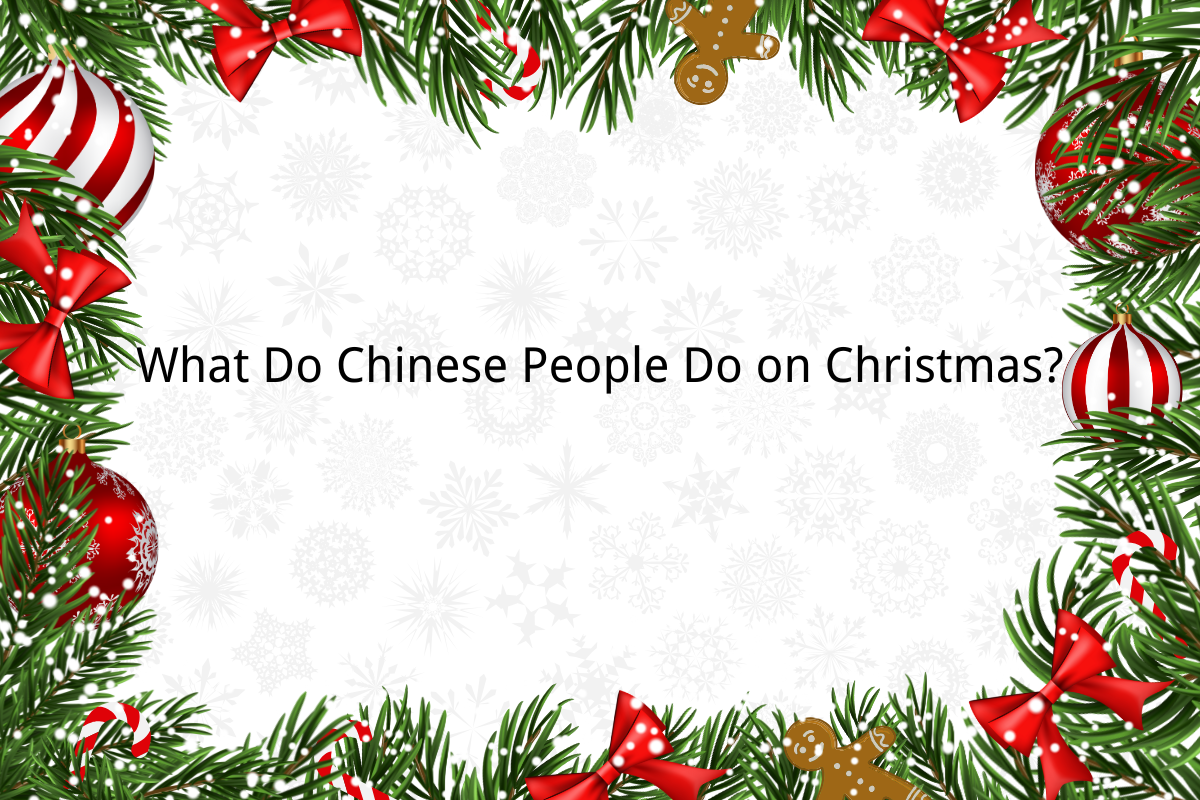What Do Chinese People Do on Christmas?
Christmas, though not a traditional holiday in China, has grown in popularity, especially in urban areas. It has become a festive occasion for socializing, gift-giving, and enjoying decorations. Unlike in Western countries, where Christmas is deeply rooted in religious and family traditions, in China, it’s more of a fun, commercial celebration. Let’s explore how Chinese people spend Christmas in modern times.

Celebrating with Friends
For many young Chinese people, Christmas is an opportunity to meet friends and exchange gifts礼物 (lǐwù). Shopping malls and online platforms often run special sales, making it easier to find unique presents. Friends also gather for Christmas-themed parties, complete with music, food, and festive games. Gift-giving has become a way to express appreciation and strengthen relationships during the holiday season.
礼物, noun, gifts
- Giving gifts is a popular Christmas tradition.
送礼物是圣诞节流行的传统。
sòng lǐwù shì shèngdànjié liúxíng de chuántǒng. - I received a lovely gift from my friend.
我收到了朋友送的一份很好的礼物。
wǒ shōudàole péngyǒu sòng de yī fèn hěn hǎo de lǐwù.
Shopping and Decorations
Christmas in China is often associated with extravagant decorations装饰 (zhuāngshì). Shopping malls are adorned with sparkling lights, enormous Christmas trees, and festive displays. Many people visit these locations to take photos, shop for holiday sales, or simply enjoy the lively atmosphere. Large cities like Shanghai and Beijing even host Christmas markets, where visitors can enjoy themed snacks and crafts.
装饰, noun, decorations
- Shopping malls are filled with beautiful decorations during Christmas.
圣诞节期间,商场里充满了漂亮的装饰。
shèngdànjié qījiān, shāngchǎng lǐ chōngmǎnle piàoliang de zhuāngshì. - People love to take photos with the Christmas decorations.
人们喜欢和圣诞装饰合影。
rénmen xǐhuān hé shèngdàn zhuāngshì héyǐng.
Eating and Exploring
Food also plays an important role in the way Chinese people celebrate Christmas. Western-style meals, such as roasted turkey or steaks, are popular in restaurants, but local twists are often added. Some people even enjoy exchanging apples苹果 (píngguǒ) as a symbol of peace and good luck. This practice originates from the similarity between the Chinese word for “peace” (平安, píng'ān) and “apple” (苹果, píngguǒ).
苹果, noun, apples
- Exchanging apples has become a unique Chinese Christmas tradition.
交换苹果成了中国圣诞节的独特传统。
jiāohuàn píngguǒ chéngle zhōngguó shèngdànjié de dútè chuántǒng. - Apples symbolize peace and blessings during Christmas.
苹果象征着圣诞节的平安与祝福。
píngguǒ xiàngzhēngzhe shèngdànjié de píng'ān yǔ zhùfú.